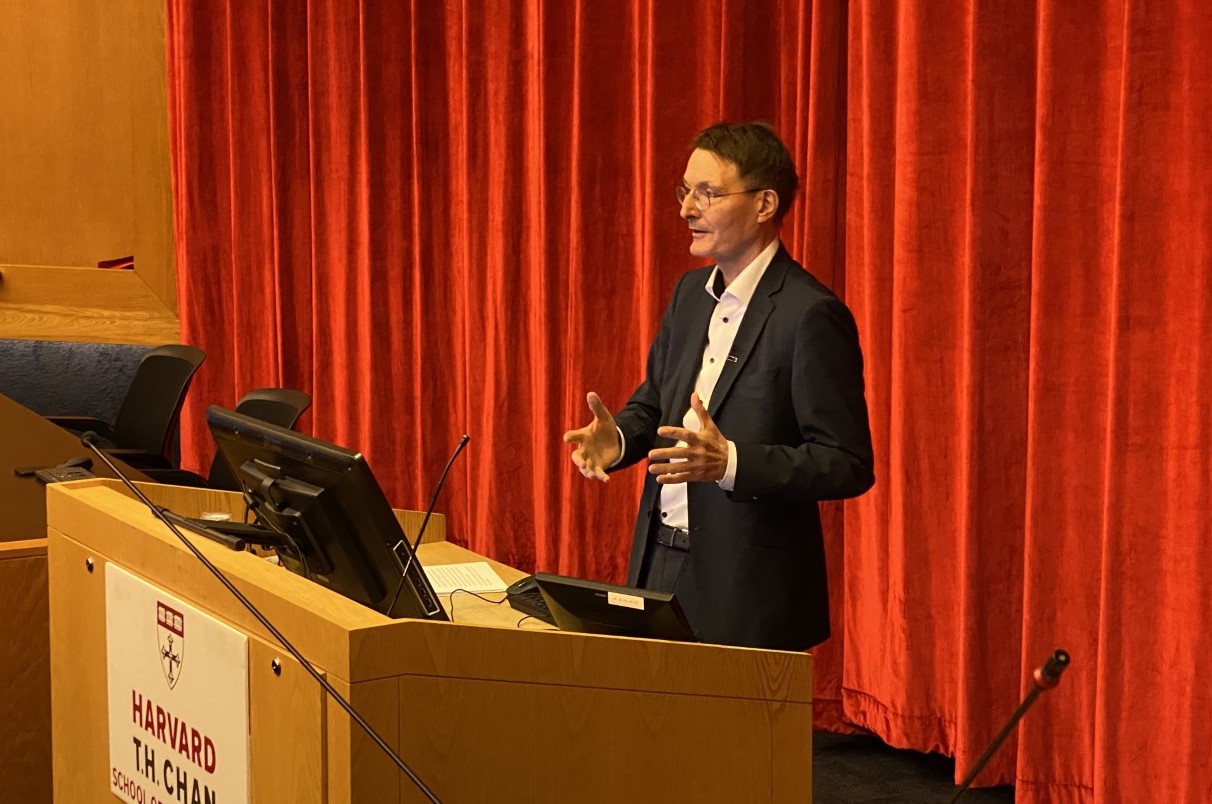Preparing for the next pandemic

Karl Lauterbach, Germany’s federal minister of health. Coppelia Liebenthal/Harvard Chan School
Before COVID-19 emerged as a global threat in 2020, institutions around the world had been trying to tackle the issue of pandemic preparedness. But those groups were underfunded, did not have clear-cut roles, and — importantly — were not working together. Now, as public health researchers and officials look ahead to future pandemics, the situation remains largely the same.
“As things stand now, most likely we will not be better prepared than we were in 2020,” said Karl Lauterbach, Germany’s federal minister of health, at a July 22 seminar at Harvard T.H. Chan School of Public Health. Lauterbach is also an adjunct professor in the Department of Health Policy and Management.
To better prepare for future pandemics, the Group of 7, or G7 — the countries of Canada, France, Germany, Italy, Japan, the U.K., and the U.S. — announced the Pact for Pandemic Readiness at its annual summit in June. The initiative aims to train scientists and health care workers from around the world with a standard set of pandemic response skills, creating a global network that can collaborate on outbreak detection and control.
The G7 announcement comes at a time when climate change is increasing the threat of infectious disease outbreaks. As wildlife habitats disappear, animals are moving closer to each other and to humans, interacting in new ways that create more opportunities for viruses to jump between species. “It’s only a matter of time until climate change has made more and more of these outbreaks become big enough that they become pandemics,” Lauterbach said.
To prepare, the G7 pact proposes creating centers of excellence around the world that would teach the virology and epidemiology skills necessary to control pandemics, such as developing diagnostic tests and modeling outbreaks. The centers would also provide lab equipment and connections to industry partners.
The World Bank has set up a fund for the pact of roughly $1.5 billion per year, which is a minor investment compared to the expenses associated with a pandemic, Lauterbach said. “The costs of a lost opportunity to prevent a pandemic are … mind-boggling,” he noted.
The World Bank is still deciding how the fund’s money should be distributed. Typically, the organization supports specific projects within individual countries. But according to Lauterbach, that approach would lead to disjointed, ineffective efforts. Instead, he thinks, investments should go toward building a global public health workforce that is well-versed in key scientific disciplines.
“We need a much better grounding of science in our daily policymaking,” he said. “Otherwise, there will be no way that we will master the challenges ahead.”




